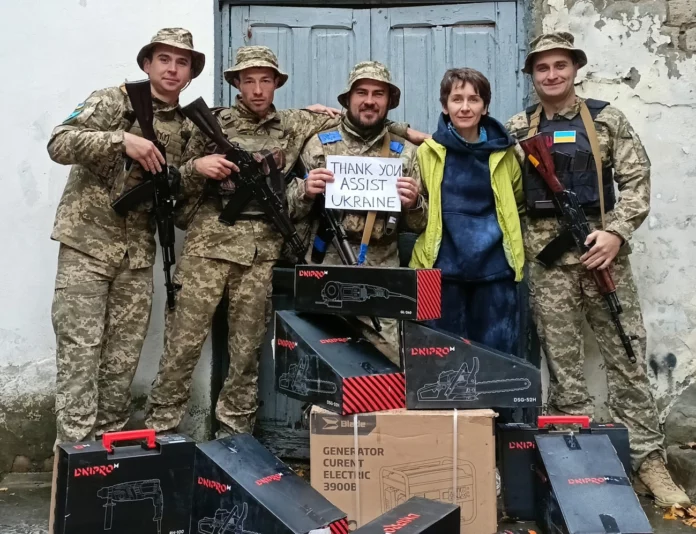In an unconventional twist of fate, Olga Shpak, a renowned marine biologist, who once fiercely battled for the survival of endangered whales, is now on the front lines of a very different kind of battle: the war in Ukraine. Once a revered researcher at Moscow’s A.N. Severtsov Institute of Ecology and Evolution, Shpak left behind her beloved whales and her life in Russia in February last year, as Putin’s forces threatened her home country.
Shpak’s profound contributions to whale conservation, particularly for the bowheads in the Sea of Okhotsk, led to vital protections for these marine creatures. Her commitment to saving whales was unparalleled, and her abrupt exit left a significant void. According to Phil Clapham, a retired biologist, Russia lost one of its best advocates for marine mammal conservation when Shpak traded her lab coat for a volunteer vest.
Currently, Shpak is engaged in the harrowing task of assisting nonprofit aid groups in the war zone. Amid the chaos of blaring bomb sirens, she helps provide essential supplies to civilians and soldiers alike. But this shift from tranquil marine life to the chaos of war has come at a high personal cost. Shpak acknowledges that her scientific mind is struggling to adapt. “To do science, you have to concentrate. And that switch is broken,” she admits.
The war has taken a toll on the global scientific community. Collaborations with Russian institutions are on hold, scientific projects have been abandoned, and funding has been lost. The conflict has affected even the most significant global scientific endeavors, such as the Large Hadron Collider and the International Space Station.
But the Arctic, where Shpak once researched, is where the war’s impact on science is felt most acutely. Russia, one of the most influential climate players, controls about half of the coastline bordering the rapidly warming Arctic Ocean. The region is in dire need of research and scientific intervention, but the war has drastically reduced these efforts.
From a personal standpoint, Shpak’s departure from science feels like a resignation from a lifelong passion. Despite the urgency of the Arctic’s environmental issues, she confesses, “Honestly, it feels like, whales will live without me.” Her focus is now entirely on the human cost of the war.
This shift in priorities is mirrored by other displaced scientists like Olga Filatova, a Russian whale biologist, who had to abandon her research in Russia. She now holds a temporary position in Denmark but can’t reapply for her Russian grant for the next three years.
The war has also disrupted crucial scientific cooperation at the Arctic Council. This intergovernmental forum, once a hub of regional scientific research, has been fragmented by the conflict. The future of this collaborative body remains uncertain without Russia’s participation.
Shpak, once a devoted marine biologist, now finds herself more committed to her fellow humans in the midst of conflict. The war has unveiled a newfound sense of community for her. Shpak’s story is a testament to the resilience of the human spirit, her journey from saving whales to saving lives symbolizes the urgent need for peace and stability. Her story is a reminder that while the world may turn its focus to the human toll of war, we must not lose sight of our responsibility to protect the planet.



